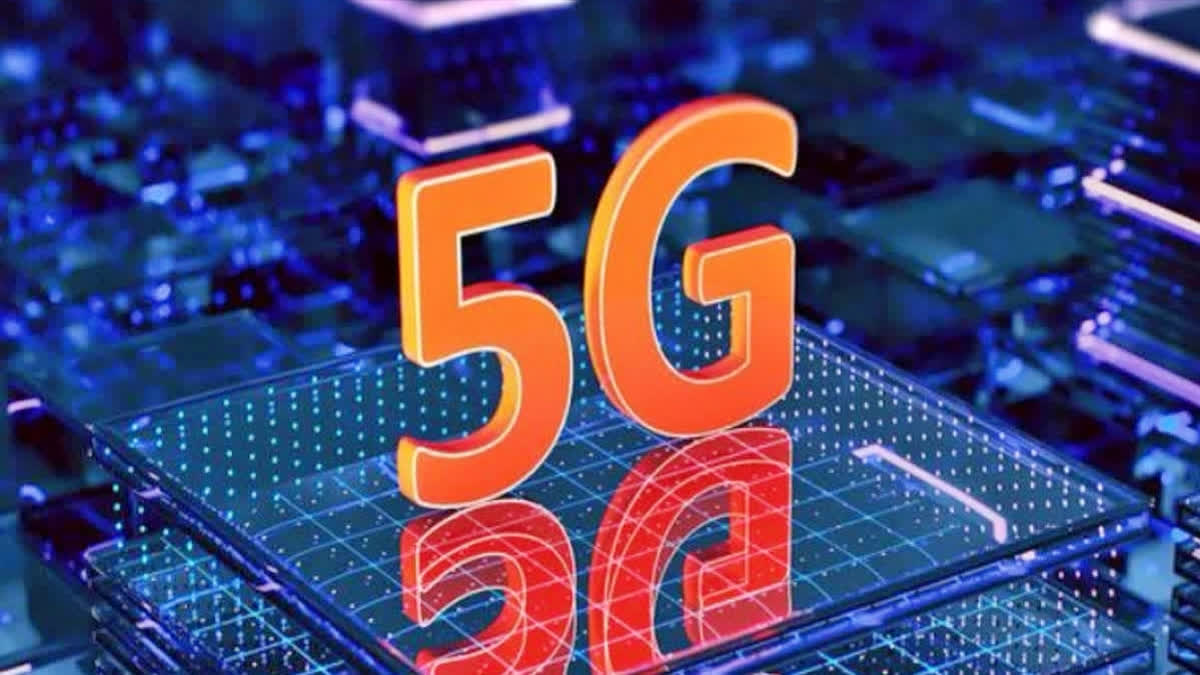New Delhi: New industries relying on fifth-generation mobile telephony services, satellite communication-based services and micro-processors will add significantly to the Indian economy in the next five years, said global consultancy firm KPMG in a report, adding that the combined value addition by these services to the country’s economy in the next five years would be at around $240 billion.
India, which is the fifth largest economy in the world, has set an ambitious target of becoming a five trillion dollar economy in the next few years. In its report, the consultancy firm laid out the transformational potential of the 5th generation services, services based on satellite communication and micro-processors as India aims to leverage these technologies to propel its economic growth.
Prime Minister Narendra Modi had launched the 5G mobile services in the country in October last year and since then the country has witnessed one of the fastest roll out of 5G services in the world and boasts of a 100 million 5G subscriber base. The KPMG report said the new industries based on these services will contribute to 1.6 percent of the country’s GDP by March 2028.
According to the KPMG report which has been released in the seventh edition of India Mobile Congress, the country was ready for a monumental shift to become a global digital powerhouse as the three technologies leverage key national strengths. These are economy, technology, demography and demand.
According to the report, India’s telecom market which is currently valued at Rs 3,000 billion is expected to grow at a compound annual growth rate (CAGR) of nearly 7-9 per cent by the next financial year.
Big boost to employment generation
At present, around 4 million people are employed in the country’s telecom sector which is dominated by big players such as Jio, Airtel, Vodafone and state owned Bharat Sanchar Nigam Limited (BSNL) and MTNL.
The report said more than half of the 4 million strong manpower employed in the telecom sector is in direct employment while 1.8 million people are indirectly employed in the telecommunication industry in the country.
The report said that in the next three years, employment in the telecom sector would exceed the 6 million mark due to use of cutting-edge technologies such as the Internet of Things (IoT), 5G and 6G mobile network and virtual network operations.
India is developing its own 6G network
India is working on the development of its own 6G mobile services in partnership with local industry as it wants to reduce the country’s dependence on imports in the critical sectors of the economy under its ambitious self-reliant India (Atma Nirbhar Bharat) scheme.
In fact, while addressing India Mobile Congress in October last year, Reliance Industries’ Mukesh Ambani had said that by December 2023 Jio Infocomm will offer 5G services across the country and most of its 5G network was developed indigenously under the Atma Nirbhar Bharat programme.
Talking about the tremendous employment generation potential of 5G mobile services-based industries, the KPMG report said that there will be nearly a 40 per cent increase in hiring in the telecom and related industries in the coming years. The rollout of 5G and 6G will boost job prospects in the telecom sector.
India leapfrogs in download speed
A report released earlier this month showed that due to the faster rollout of 5G services in the country in the last one year, India has jumped 72 places in global download speed. A ranking done by Ookla, a Seattle-based company known for its fixed broadband and mobile network testing application, said that India improved its rank in download speed and secured 47th spot, ahead of several G20 countries due to faster adoption of 5G services in the country.
Moreover, Indian consumers are one of the biggest data users per capita globally as they consume an average of 19.5 GB of data per month. One of the highest in the world.
The KPMG report said an increase in Over-The-Top (OTT) content viewership, a sharp decrease in data cost over the years and a surge in remote work opportunities and online education have contributed to this rise in data traffic. Indians are expected to consume 62 GB of data per month by 2028.
Smartphones reach rural India
The report highlighted that rural smartphone ownership has doubled between the pre-Covid era and 2023. While 358 million of India's 759 million users reside in rural areas, the rural internet penetration rate in India is projected to reach 56 per cent by 2025.
On the spectrum allocation versus auction debate, the KPMG report cited examples of permitting spectrum usage without auction. For example, in Germany, certain bands of frequencies are designated as 'general assignments' for use by the general public or specific groups.
The report said Germany had opted to allocate 5G spectrum to telecom providers on a rolling basis, which emphasizes rapid deployment over revenue maximization.



